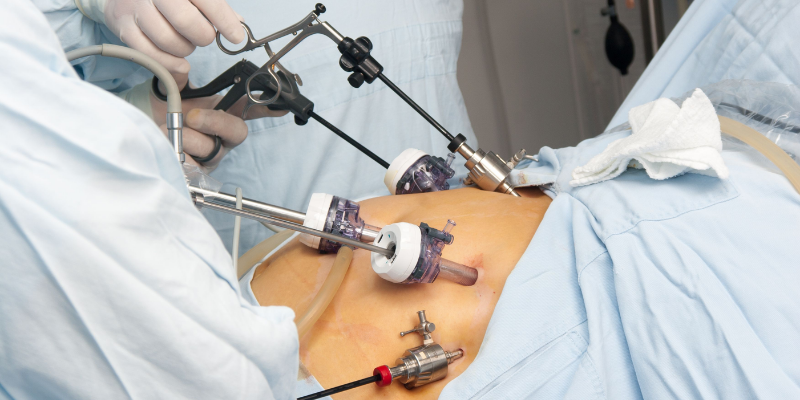What Is The Safest Form Of Weight Loss Surgery?
What is the safest form of weight loss surgery? Obesity surgery is a word that refers to a range of surgical procedures performed on the digestive system to address obesity issues that cannot be resolved via diet and exercise alone. There is no such thing as the finest bariatric surgery; the optimal operation is one that is tailored to the patient’s needs.
Bariatric surgery, often known as gastric bypass surgery, is a phrase that refers to a series of surgical procedures performed on the digestive system to address the problem of excess weight that is causing health problems and cannot be resolved with diet and exercise alone. Bariatric surgery is derived from the Greek words baros, which means weight, and iatrikos, which means cure. We can certainly state that all of the bariatric operations we provide are safe, with the gastric band being the safest of them all because of its minimal invasiveness.
In reality, bariatric surgery is one of the safest types of surgery available today, with very low fatality rates nationwide. The gastric band has a 0% death rate among individuals with Healthier Weight. That is true for all of the weight-loss procedures that we provide. The first gastric band was implanted almost 25 years ago when the open vertical banded gastroplasty (VBG). Roux-en-Y gastric bypass were the two most common weight-loss surgeries (RYGB).
What Is The Safest Form Of Weight Loss Surgery?: How Beneficial Is Lap-Band?
Each weight-loss method has its own set of advantages. By altering hunger and stomach emptying, the gastric sleeve assists patients in losing weight. Gastric bypass is the most effective treatment. Patients may expect to lose roughly 70% of their extra weight in two years and keep it off for the rest of their lives. It also has the greatest impact on those who are overweight and suffering from health problems as a result of their weight. The ESG is a less invasive, non-surgical technique with minimal risk of complications. The gastric band’s key advantages are that it is reversible, minimally invasive, successful. Also it has the lowest complication rate of any surgical treatment.
These two were linked to a high rate of morbidity and death at the time. However, the gastric band promised to be a safe and effective alternative. Your ability to adjust to the diet and eating regimen necessary for success in the band will determine your success. As a general rule, you should lose 50-60% of your excess weight in the first two years, however, many people will perform considerably better.
The sleeve and bypass would generally result in a somewhat larger weight reduction. However, keep in mind that the gastric band is totally reversible and a considerably less intrusive choice. Despite the fact that obesity surgical treatments involve a wide range of procedures, the mechanism of action may be divided into two categories. The restrictive impact limits the amount of food that may be consumed, whereas the malabsorptive effect inhibits food absorption.
What Are The Risks Of Bariatric Surgery In General?
The risks of bariatric surgery are minor for the vast majority of people. Obesity may lead to a variety of health issues and diseases, including diabetes, coronary heart disease. Also, some forms of cancer, as well as an increased risk of early mortality.
Losing weight can also improve one’s quality of life by elevating one’s mood and lowering depression. It has been shown to minimize dependency on blood pressure and asthma medication in women who are having difficulty conceiving owing to PCOS. Many people will see their liver disease and dyslipidemia improve or disappear (abnormal blood fats).
Patients who have bariatric surgery and stick to it notice a considerable increase in their general health. Hence, it is allowing them to live a longer, happier, and healthier life. Perhaps the question should be “how safe are gastric bands?” rather than “how safe are gastric bands?” “How safe is it to not have a gastric band?” you might wonder. All of the weight reduction operations performed laparoscopically. Hence, this significantly minimizes the risk of problems when compared to open surgery. This has a substantial impact on healing durations and ensures that scarring kept to a minimum. Both of these factors may necessitate the removal of the band. Even if subsequent consequences consider, it is reasonable to conclude that the band is the safer operation. Not least since most band issues may manage with a planned revision procedure.
Things To Consider About Bariatric Surgery
The laparoscopic gastric band recognized as the safest weight reduction treatment. If we include mortality and problems during surgery and the period immediately after it, this is undoubtedly true. This is due in part to the procedure’s inherent character.
It does not require the stomach to slice, unlike the sleeve and bypass procedures. Simply doing so eliminates the danger of stomach contents spilling via staple lines. Another consideration is that the band preferred by patients who are smaller and have a lesser risk of complications. Sleeve or bypass surgery advised for patients who are in poor health owing to their weight or have a high BMI (50+).
A total of 4 or 5 tiny incisions make in the belly during minimally invasive surgery. It also known as laparoscopic surgery or closed surgery. These are normally no bigger than your finger in diameter. Trocars, which are unique ports that allow laparoscopic tools to reach the belly, implant through these inlets. Meanwhile, carbon dioxide gas pump into the belly at a certain pressure to protect the abdominal organs and allow the surgeon to operate comfortably. The majority of this gas expell out the ports at the conclusion of the procedure. So, this is the remainder absorbed by the peritoneum and evacuated through the lungs.
The situation changes slightly if we look a bit further ahead. A fraction of band patients will have difficulty adhering to the strict dietary regimen required for success. To compensate, the band may overtighten. So, it is resulting in eventual issues such as the pouch becoming strained or symptoms. These symptoms are similar to those associated with reflux.
What is the Safest Form of Weight Loss Surgery, and How Do I Qualify for It?
A few types of weight loss surgery may be considered the safest and most effective option, depending on the individual’s needs. According to some sources, the answer to ‘what is the safest form of weight loss surgery?’ is laparoscopic sleeve gastrectomy (LSG). During this procedure, a surgeon reduces the size of the stomach and removes approximately 87% to 90% of it. Nonetheless, gastric bypass and gastric sleeve surgeries are two of the most commonly performed operations for weight loss. These procedures involve modifying or removing part of the stomach to restrict food intake and aid weight loss.

The best way to answer ‘what is the safest form of weight loss surgery?’ is to speak with a qualified medical professional. Your doctor can discuss all available options and determine which type of weight loss surgery best suits your individual needs and lifestyle. You may also be required to meet specific requirements before being considered a candidate for any kind of surgery. Generally, individuals must have a body mass index (BMI) of 40 or higher or a BMI of 35-39 with other obesity-related health issues. You must understand each surgical option’s risks, benefits, and long-term consequences to make an informed decision about your surgery.





